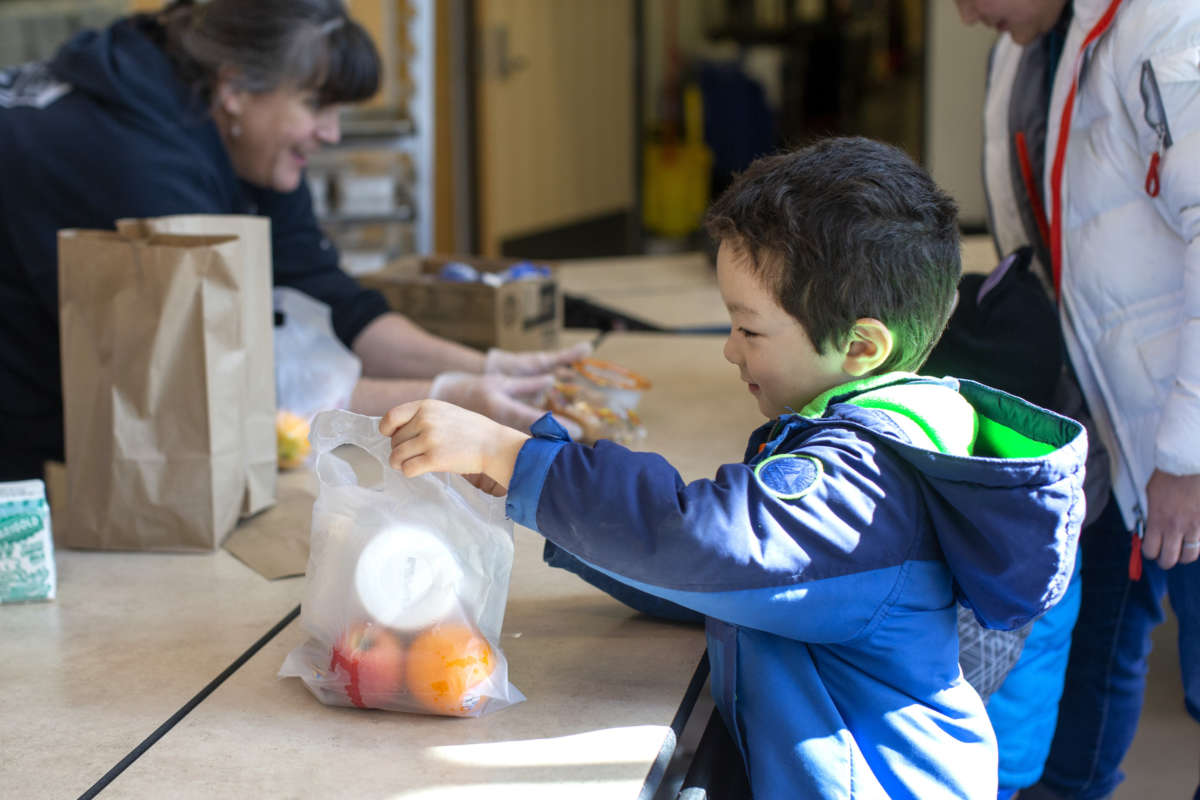Honest, paywall-free news is rare. Please support our boldly independent journalism with a donation of any size.
On Tuesday, a bipartisan group of lawmakers announced that they have reached a consensus on a bill to extend the universal school meals program that’s helped keep millions of children fed throughout the pandemic — but the agreement removes the universal aspect of the program.
Senators Debbie Stabenow (D-Michigan) and John Boozman (R-Arkansas) and Representatives Bobby Scott (D-Virginia) and Virginia Foxx (R-North Carolina) have unveiled the Keep Kids Fed Act, which would extend a supplemented school meal waiver program through the upcoming school year and provide 40 cents more in federal reimbursements for school lunches and 15 cents in reimbursements for breakfast.
Lawmakers had rushed to reach an agreement with Republicans, who wanted to weaken the program, ostensibly because they were concerned about its cost. While the proposal comes just before the current waiver program is set to expire on June 30, it requires the federal school meal program to be restricted to families making under a certain salary range.
Stabenow and Scott have acknowledged that the agreement is weaker than they originally wanted. Still, the lawmakers and advocates for the waiver program celebrated that they were able to reach an agreement with Republicans on the legislation at all, just nine days before the current program is set to expire.
“While the country is on the road to recovery, many schools are still struggling with supply chain shortages and other increased costs that will make it more difficult to serve meals next year,” Scott said in a statement. “While this bill does not go as far as I would like in supporting our nation’s students, it is a meaningful step in the right direction.”
In a press release on the bill, the Republicans in the group specifically praised the fact that the waivers would now reach fewer children than they have been in the past two years of the universal program. “This legislation will uphold our responsibility to taxpayers and abide by the principle that aid should be targeted and temporary while also helping students truly in need,” Foxx said. Boozman also celebrated the fact that the new bill will be “fully paid for.”
While it’s true that the new proposal is cheaper — with a price tag of about $3 billion, while extending the universal program would have cost about $11 billion — commentators have pointed out that conservatives who handwring about the cost of feeding children often have no qualms about supporting the country’s annual injection into the massive Pentagon budget. This year, for instance, senators have stacked $45 billion on top of the already record-breaking defense budget on a bipartisan basis, bringing the total proposed budget to a whopping $847 billion for next year.
Meanwhile, schools and local groups say that a reduction in funding for their meal programs will be devastating to their ability to ensure that children are fed. This impact could be felt widely across the country, as the U.S. Department of Agriculture (USDA) estimates that 90 percent of school nutrition programs are currently receiving funds from the universal meals program.
Placing income limits on the program could block millions of children from being able to access meals. About 30 million children are currently receiving meals under the program, while only 20 million children were on federal meal assistance before the pandemic. Many of the 10 million children who started receiving free meals when the pandemic began are from families who were above the income threshold for the program but still struggling to put food on the table — a problem that has been exacerbated by high inflation rates in recent months.
Activists and progressives have long advocated for universal free meals for children. Without means testing, families won’t be forced to jump through hoops in order to receive the meal benefits, and stigma against kids who benefit from free meals could be reduced. Meanwhile, doing reimbursements rather than reducing the cost of the meal upfront could negatively impact families who can’t afford the meals to begin with, compounding problems with school lunch debt.
Press freedom is under attack
As Trump cracks down on political speech, independent media is increasingly necessary.
Truthout produces reporting you won’t see in the mainstream: journalism from the frontlines of global conflict, interviews with grassroots movement leaders, high-quality legal analysis and more.
Our work is possible thanks to reader support. Help Truthout catalyze change and social justice — make a tax-deductible monthly or one-time donation today.
